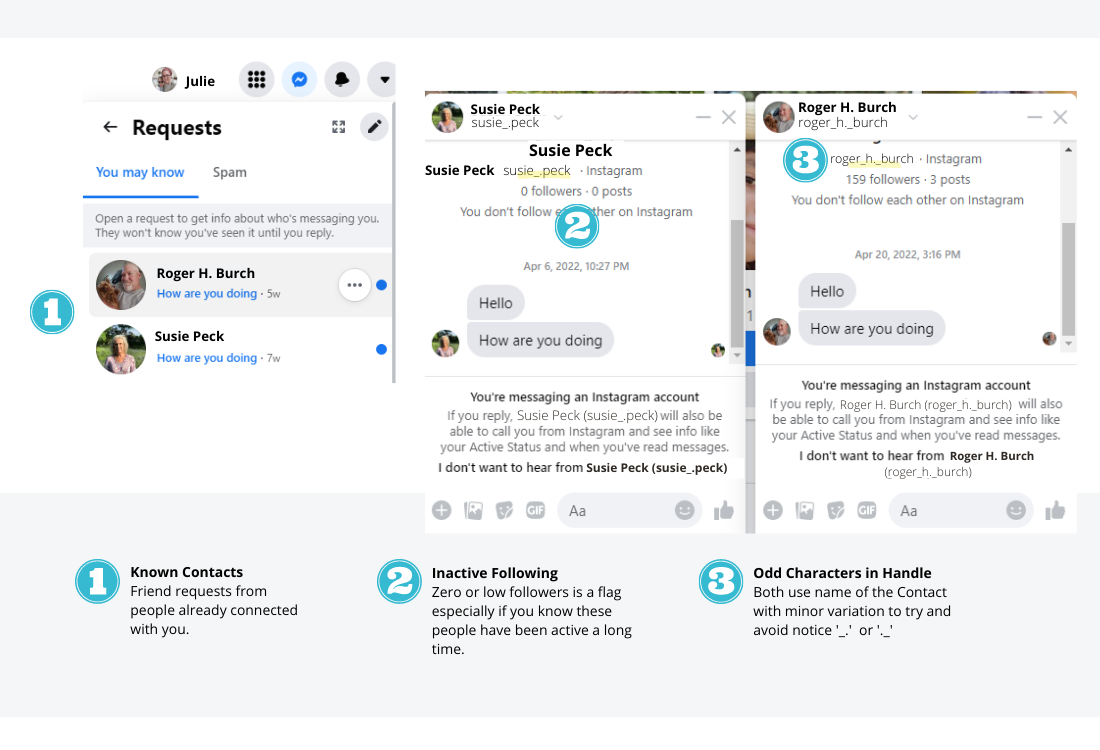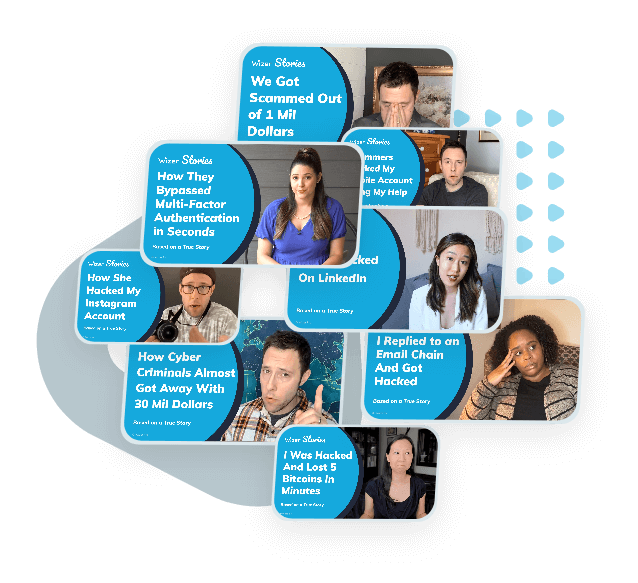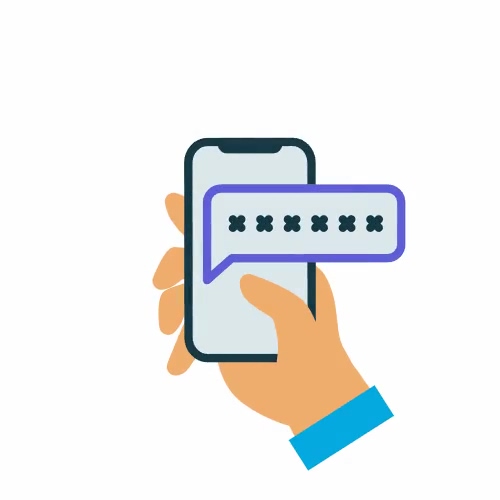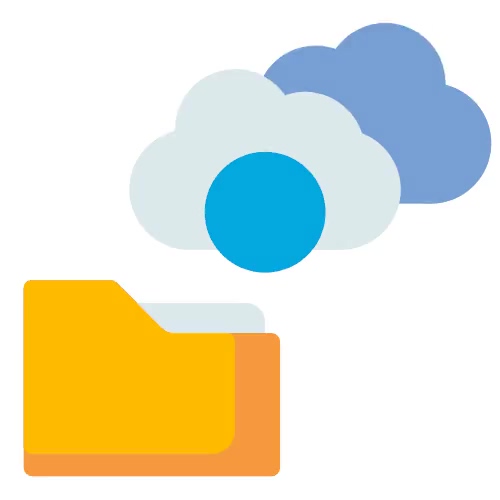#5: Protect Your Social Media
We can't talk about cyber security without touching on social media. We live in a world where social media platforms are being used for everything - connection, communication and even jobs!
While we’ve all been warned, seen a lot of scams, and ignored certain types of messages, but new scams arrive each day so it's important to stay "in the know." That's where this guide to protecting your social media comes in.
Let's kick it off with a sophisticated Facebook scam targeting Joe with an opportunity to make some extra cash.
Use Strong and Complex Passwords
From Step #1: Securing Your Passwords, you KNOW how important it is to have a strong and unique password as passwords are the first line of defense in protecting your valuable personal information. However, if you use a super simple password that is easy to guess, such as "12345," or reuse the same password for all your accounts, you're handing scammers the key to your digital life and giving them the freedom to do whatever they want with it. So remember: create a long, complex password FOR EVERY ACCOUNT AND APP especially your social media accounts. Because it's impossible to recall every password, use a password manager to safely store them.
Go On Private Mode
Social media platforms like Facebook, Instagram, TikTok and others give you the option of making your profile and posts visible to friends only. Choosing this setting keeps just anyone from seeing what you’re doing, saying and posting.
 Say “No” To Friend Requests From Strangers
Say “No” To Friend Requests From Strangers
If you can't recall meeting the person in real life or through any mutual friends, then chances are the friend request may have been sent to you by a scammer. Best practice: don't accept it. Cyber criminals are notorious for creating fake accounts designed to gather information on you in order to hack you, scam you or spread false information.
If you receive a friend request from someone you know, first see if that friend is already in your list. Next, text or DM them to see if they sent you a request. If they didn't, let them know that their account may have been hacked.
Think Twice About Tagging
Tagging your location not only reveals where you are, but also where you are not. And nothing says “nobody's at home right now” then that post of you on vacation or story of your hotel room. While you may not care if your friends know this information, the fact is that their acquaintances can also see their comments on your posts, and essentially where you are. It's highly likely that you don't know these people, their history, or their intentions, so you really have no idea who you are sharing your location with. And you've put out the information that your home is now unattended.
Don't Click On Links
Never, and we repeat NEVER, click on any links you receive from someone you don't know. Honestly, we don't recommend clicking on links even from your friends! There are so many scams going on through social media
Here's how an entire class was hacked on Instagram using links that were sent by friends.
The Internet Never Forgets
Just like Vegas, what happens on the internet stays on the internet. Whether your profile is set to private or you're using an app with “disappearing” messages and posts, like Snapchat, what you post can absolutely be saved and shared again. It’s as simple as taking a screenshot. If you don’t want it out there, forever or otherwise, simply don’t post it.
- Free Security Awareness Videos
- Quizzes
- Progress Reports and Certificates


Gabriel Friedlander
Gabriel Friedlander is the Founder & CEO of Wizer, whose mission is to make basic security awareness a basic life skill for everyone. Wizer has been rapidly growing since being founded in 2019, and now serves 20K+ organizations across 50 countries. Before founding Wizer, Gabriel was the co-founder of ObserveIT (acquired by Proofpoint). With over a decade of experience studying human behavior, he is a prolific content creator on social media, focusing on online safety to elevate public understanding of digital risks. His engaging 1-minute videos have captured the attention of millions worldwide, going viral for their impactful messages.


